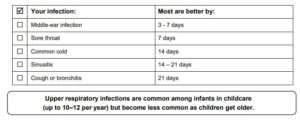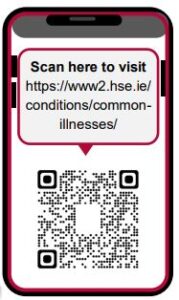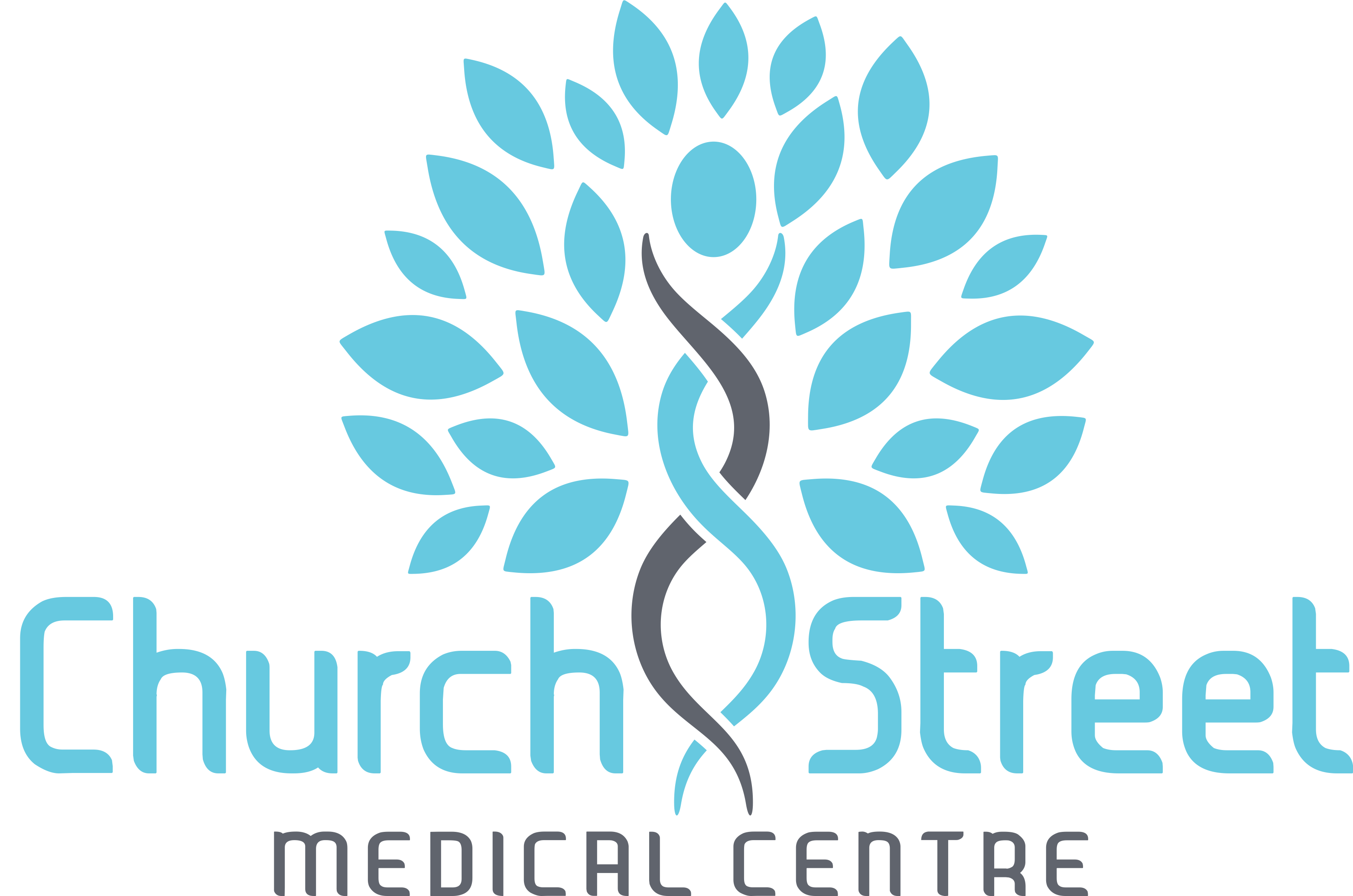- Antibiotics do not work for viral infections such as colds and flu, and most coughs.
- Colds, most coughs, sinusitis, ear infections and sore throats are mainly caused by viruses, and antibiotics are not necessary in the majority of cases.
- Your body can usually fight these infections on its own.
- Your doctor will assess whether you need an antibiotic.

How to look after yourself and your family
- Have plenty of rest to help you get better.
- Drink enough fluids to avoid feeling thirsty.
- Ask your local pharmacist to recommend medicines to help your symptoms or pain (or both).
- A high temperature is a sign the body is fighting the infection and usually gets better by itself in most cases. You can use paracetamol if you or your child are uncomfortable because of a fever.
- Cover your coughs and sneezes. Use a tissue and place it immediately in the bin. Cough or sneeze into your upper sleeve, not into your hands.
- Hand hygiene is essential to help prevent spread of infection to your family, friends and others you meet. Wash your hands with soap and water or use alcohol based hand rub or sanitiser.
- See https://www2.hse.ie/conditions/common-illnesses/ for further information.
Why you should only take antibiotics when needed
The more antibiotics are used to treat minor conditions, the more likely antibiotic resistance will occur, and that superbugs will develop. This means antibiotics can become ineffective for treating more serious conditions. Antibiotics can cause side effects such as rashes, thrush, stomach pains, diarrhoea, reactions to sunlight and other symptoms. If you are concerned, seek medical advice.
If your condition does not improve
In certain circumstances, your GP may prescribe an antibiotic, as a back-up, in case yourcondition does not improve after a few days. If you feel better, you do not need to fill the prescription. However, if you do not feel better in _________ days, then fill your back-up antibiotic prescription at the pharmacy. If symptoms get worse or your level of concern is increasing, seek urgent medical attention. Refer to ‘When to get help’ section of this leaflet.
When to get help
How an infection progresses can sometimes be difficult to predict. If you or your child are getting worse or are sicker than you would expect, trust your instincts and seek medical advice urgently from your GP, local out-of-hours GP service, emergency department or the HSE on 999 or 112. Don’t be afraid to ask “Could this be sepsis?”. Sepsis can develop when your body has an extreme reaction to any infection and urgent medical attention is needed.
The signs and symptoms of sepsis in CHILDREN are:
- very fast breathing
- fits or convulsions
- mottled skin (irregular colour) bluish or pale
- a rash that does not fade when you press it
- unusually sleepy and difficult to wake
- unusually cold when you touch them
- has had no pee or wet nappy for more than 12 hours
Signs and symptoms of sepsis in ADULTS are:
- slurred speech, new confusion, too sick to communicate, drowsy
- extreme shivering, muscle aches, fever
- has not passed urine in the last 12 hours
- shortness of breath, lips tinged with blue
- feels like your heart is racing, dizzy when you sit or stand
- feeling a lot worse. “I feel like I’m going to die”
- Skin mottled and discoloured, new rash that is still visible when pressed on with a clear glass (glass test)
Go back to your GP if:
- if you are not starting to improve a little by the time given in the ‘Most are better by’section.
- your child has a middle ear infection and there is fluid coming out of their ear/s
For more information, can the QR code for visit the below website


